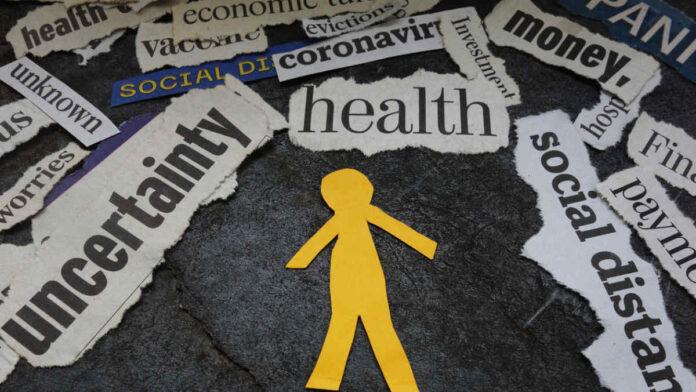Adolescent mental health experts say that a residential mental health program is the perfect alternative to care for adolescents and provide them with a friendly environment while rehabilitating.
Substance abuse and mental health are closely intertwined, and this is particularly true for teenagers. Substance abuse can lead to the development of mental health problems, and mental health problems can lead to substance abuse.
Understanding the relationship between substance abuse and teen mental health is crucial in supporting and getting help for teens struggling with these issues. We spoke to a clinician at a Boise teen mental health clinic, https://www.averyshouse.com/teen/id/boise/, for their insight on the topic.
Substance Abuse and Mental Health:

Substance abuse is defined as the harmful use of drugs or alcohol. Teens may abuse substances for various reasons, including peer pressure, stress, or a desire to fit in. However, substance abuse can lead to multiple mental health problems, including anxiety, depression, and psychosis.
Substance abuse can also exacerbate existing mental health problems. For example, a teen with depression may turn to alcohol or drugs to cope with their feelings, but this can make their depression worse in the long run.
Substance abuse can also make it more difficult for teens to recover from mental health problems, disrupting sleep and making it harder for them to focus or participate in therapy.
Mental Health and Substance Abuse:

Mental health problems can also lead to substance abuse. Teens with mental health problems may use substances to cope with their feelings or self-medicate.
For example, a teen with anxiety may use marijuana to calm their nerves, or a teen with ADHD may use stimulants to help them focus. However, this can lead to a cycle of abuse and dependence and worsen the underlying mental health condition.
Risk Factors for Substance Abuse and Mental Health:
Several risk factors can increase the likelihood of substance abuse and mental health problems in teens.
One significant risk factor is a family history of substance abuse or mental health problems. Teens with a parent or close relative with substance abuse or mental health issues are more likely to develop similar problems.
Exposure to violence or trauma, social and economic disadvantage, difficulty in school or poor academic performance, poor family functioning, or lack of parental supervision can also increase the risk of substance abuse and mental health problems.

Among others, risk of substance abuse and mental health problems in teens. These include:
- Family history of substance abuse or mental health problems
- Exposure to violence or trauma
- Social and economic disadvantage
- Difficulty in school or poor academic performance
- Poor family functioning or lack of parental supervision
- Easy access to drugs and alcohol
It’s important to note that these risk factors do not necessarily mean a teen will develop substance abuse or mental health problems. However, they indicate that a teen may be at a higher risk and that extra support and resources may be needed.
Treatment for Substance Abuse and Mental Health:

Substance abuse and mental health treatment in teens should be tailored to the individual. The treatment options can vary depending on the specific issues and needs of the teen. Some of the most common treatment options include:
- Therapy: Talking to a therapist or counselor can help teens work through their feelings and develop coping strategies.
- Medication: Medication can help regulate mood swings and alleviate symptoms of mental health problems.
- Support groups: Joining a support group can help teens connect with others who have experienced similar struggles and provide a sense of community and understanding.
- Addiction treatment: Teen-specific addiction treatment centers can provide comprehensive care, including detox, counseling, and aftercare support.
- Support groups: Support groups can be valuable for teens struggling with substance abuse and mental health problems. These groups allow teens to connect with others who have experienced similar struggles, providing a sense of community and understanding. Teen-specific addiction treatment centers can provide comprehensive care, including detox, counseling, and aftercare support.
- Lifestyle changes can also be essential in treating substance abuse and mental health problems in teens. Eating a healthy diet, getting regular exercise, and enough sleep can help improve overall well-being and alleviate symptoms of mental health problems. Encouraging healthy coping mechanisms, such as exercise and journaling, can also help teens manage stress and build resilience.

It’s important to remember that substance abuse and mental health problems are complex conditions that require professional help.
Preventing teen substance abuse and mental health problems is crucial to protecting their well-being. Parents and caregivers can avoid these issues by teaching teens about the risks of substance abuse and the importance of maintaining good mental health.
Encouraging open communication and providing a supportive environment for teens to discuss their thoughts and feelings can also help prevent these issues.
Early intervention and treatment are crucial in helping teens overcome these issues and prevent them from becoming more severe. It’s also essential to involve the whole family in the treatment process. Family therapy can help family members understand the condition, learn how to support the teenager, and communicate effectively.
Preventing Substance Abuse and Mental Health Problems:
Preventing teen substance abuse and mental health problems is crucial to protecting their well-being. Parents and caregivers can take steps to avoid these issues by:
- Teaching teens about the risks of substance abuse and the importance of maintaining good mental health
- Encouraging open communication and providing a supportive environment for teens to talk about their thoughts and feelings
- Setting clear boundaries and expectations around substance use
- Educating teens about the dangers of drugs and alcohol and the importance of making healthy choices
- Encouraging healthy coping mechanisms, such as exercise and journaling
- Teaching teens about the importance of self-care and how to manage stress
- Being aware of the signs of substance abuse and mental health problems and seeking professional help if needed
It’s also essential for parents and caregivers to model healthy behaviors and attitudes around substance use and mental health. Teens often look to their parents and caregivers as role models, so it’s essential to set a good example and lead by example.
Conclusion:

The relationship between substance abuse and teen mental health is complex and requires a multifaceted approach to treatment and prevention.
By understanding the risk factors and preventing substance abuse and mental health problems, parents and caregivers can help protect their teens’ well-being and ensure they receive the support and resources they need to overcome these challenges.
Substance abuse can lead to mental health problems as mental health problems can lead to substance abuse. Understanding the relationship between the two is crucial in supporting and getting help for teens struggling with these issues.
Parents and caregivers can play an essential role in preventing substance abuse and mental health problems. Early intervention and treatment are crucial in helping teens overcome these issues and protect their well-being.
Plenty of information about teen substance abuse prevention is available in the local school districts, authorities, libraries, and on the internet. Prevention should start when a new member of the family arrives. Never is too early to get information about substance abuse and, more importantly, how to prevent teens from failing into the obscure addiction world.



















